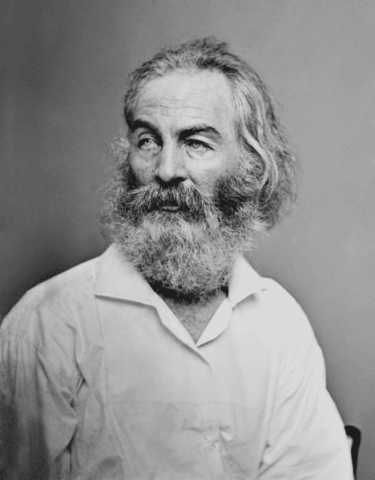Full Name: Walt Whitman
Birth Date: May 31, 1819
Birth Place: West Hills, New York
Died: March 26, 1892
Occupation: Poet, Journalist
Girlfriend: Anne Gilchrist
Religion: Transcendentalism
Zodiac sign: Cancer
Walt Whitman is an American popular poet and journalist who come from a humble beginning and influenced very much in American society through his writings. He was a man of the common people, a poet of mankind, and democratic people. Whitman emerged as a poet during the civil war in America and wrote about the crisis of this country that was the time Abraham Lincoln ruled the country.
Walt Whitman Early Life:
Walt Whitman was born on May 31, 1819, in West Hills Long Island. Whitman’s mother, Louisa Van Velsor, and his father, Walter, were semi-literate. They had nine children, of whom two were mentally unfit.
The father earned a meager living, first at farming, then at laboring, building, and carpentry. The mother was closer to her son, Walt than the father. Her interest in Quakerism was the only religious inheritance the family passed on to the future poet.
As he later came to idealize his mother, so he also came to romanticize his ‘Quaker’ childhood. His use of ‘thee’ and ‘thou’ in his poetry and his reference to the months by numbers can be traced to his Quaker background.
The poet’s childhood was lived in alteration between the farm on Long Island and the streets of the neighboring city of Brooklyn. ‘Both the world of nature and the world of man impinged forcefully on the young boy’s imagination, and the nature poet denied neither but exulting embraced both’.
Career:
Walt Whitman started his career journey as a journalist who come from a humble background and was a very poor man. He had an extraordinary power to settle down any kind of conflict, he put emphasis on establishing democracy in the United State. It was natural that Whitman, with his genius and metaphysical inclination, should have drifted into journalism, a profession that could make some demands on his natural abilities.
As in school teaching, he did remain long in any one job. From the age of twenty to thirty-six (when Leave of Grass was born) Whitman worked on various newspapers in and out of Brooklyn, including The Long Islander, The New York Aurora, and the Brooklyn Evening Star.
At the age of twenty-seven, he became editor of the Brooklyn Daily Eagle, a position of importance considering his youth. The job did not last beyond two years, however, because of his politics. He was a Democrat and so was the paper, but Whitman was a supporter of the Free Soil party which opposed slavery.
Leaves of Grass:
Whitman published the first edition of the Leaves of Grass on July 4, 1855, when he was thirty-six years old. In every sense, the publication was an instance of self-reliance and independence, for he published it himself.
The edition of a thousand did not sell well, nor were there reviews of it. To remedy this situation, the poet sent many copies of his books to literary notable, and also wrote three reviews himself.
These reviews are some of the most valuable biographical data in existence, for they not only give Whitman’s evaluation of his work, but they provide a self-portrait of this most crucial turning point in Whitman’s life. The self-image cannot, of course, be taken at its face value.
Whitman wrote the reviews for the public. But though they might not present Whitman as he actually was, they certainly do present him as he thought he appeared in his poetry.
The Civil War:
Whitman might well have lived out his life genially and meaninglessly in New York had not some great overriding cause appeared on the horizon. Although he had earlier in his journalistic career taken a passionate interest in politics and had supported the Free Soil party, his political interests had declined with his absorption in poetry.
He did not anticipate the Civil War; but, when the news of the firing on Fort Sunter, arrived in New York, making clear that a great national struggle was underway, Whitman was aroused from his minor personal interests to renewed creative vigor and vision. Forty-one years old at the outbreak of the war, he was beyond the age of enlistment, and, besides, he had the responsibility of caring for his mother.
Personal Life:
There is a rumor that Whitman got a proposal for marriage from a woman. Perhaps it is ironic that this proposal materializes at a time of his physical decline. At the age of seventy-two when he died, he could take some satisfaction in a life fulfilled and completed.

